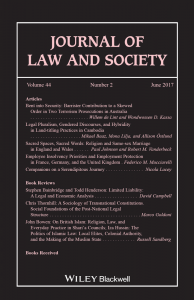Tagged: Restorative Justice
In my last post I discussed the role the school-to-prison pipeline plays in increasing the gap in minority education. The consequences of zero tolerance school policies are many including stigmatization, dropping out of school, and/or getting a juvenile record. Some schools have begun to change their responses to deviance in schools by going away from zero tolerance policies and towards restorative justice models. Restorative justice is a proactive approach requiring wholesale cultural change in the punishment orientation of the school...
In May of 1985, 15-year-old Paula Cooper and three of her friends decided to steal some money. After drinking alcohol and smoking marijuana, the group of teenage girls went to the home of Ruth Pelke in Gary, Indiana. At 78, Pelke was no match for the teens who gained entrance to the house after proclaiming their interest in receiving Bible lessons. Pelke was attacked and died after Cooper hit her with a vase, cut her legs and arms, and then...
As explained by Walker (2013), modern restorative justice (RJ) began in the 1970s with the revitalization of the idea that victims and offenders need to come together and talk about what happened in an effort to achieve peace and (hopefully) restoration. While such a thought seems somewhat revolutionary in our day of overly punitive justice, RJ was the primary method used to handle offenses in pre-modern times. In fact, it was not until the Norman Conquest in 1066 that RJ...



